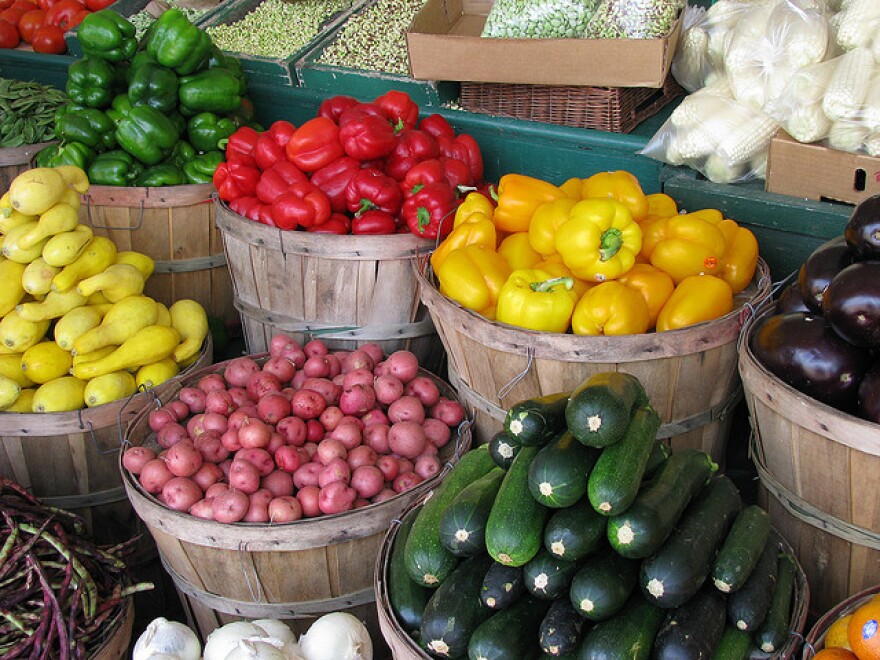When University of Missouri Students leave residence halls they don’t often have the luxury of eating at campus dining halls like they once did. Students must then shop for their own groceries, which is something some may have never done before. When students or even members of the Columbia community shop they do not always know where their food is grown or where their meals come from.
The MU Environmental Leadership Office hosted its annual Campus Farmers' Market Thursday morning so that students and Columbia residents have the opportunity to learn about locally grown food.
Environmental Leadership Social Coordinator Mackenzie Mock says it is essential students know and understand where their food is coming from.
“I think that’s something students really need to know.” Mock said. “Especially when they are moving out of the residence halls and living on their own. This is definitely something to get them thinking about what they want their food to be and how they want it to be produced and everything.”
Grandma Barb’s Pies, Missouri Legacy Beef and Fretboard Coffee also presented their food to the locals on campus.
Fourth generation Missouri Legacy Beef Rancher Mark Mahnken says learning where our food comes from is essential when looking for quality products.
“I believe that the people of MU and Columbia want to be well educated about their food,” Mahnken said. “They’re looking for quality, they’re looking for safety in their products opposed to just a high quantity, they want the quality.”
The Salisbury, Missouri ranch produces local all-natural free range beef that many dining halls on campus buy.
Mahnken believes that food should be relational and that the community is doing a good job teaching about locally grown food, but there is still more that people have to learn.
The Environmental Leadership Office and its affiliate, Tigers for Community Agriculture, is working to teach students tips on how to grow and purchase produce.

